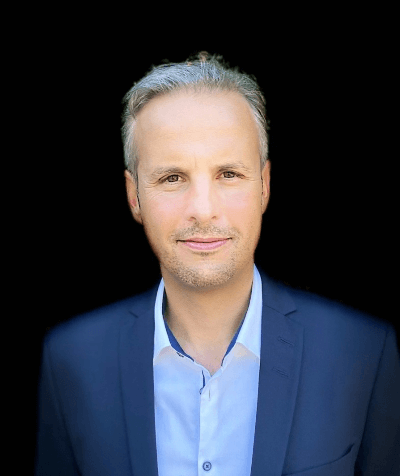An Executive MBA (EMBA) can be your ticket to career transformation. Aimed at experienced managers and leaders, EMBA programs offer a broad array of business knowledge, skills, and a broadened network, giving you the tools to take your career to the next level.
Before unlocking the benefits of an EMBA, though, you have to be admitted to a program. Before securing admission, you’ll have to apply, where you will submit your resume and LinkedIn profile, academic transcripts, essays, and references.
The thorough application process can also require you to reflect upon and clearly articulate your motivations behind applying, as well as complete an entrance test and interviews with faculty and alumni.
So how can you have the best chance of success? Here are five tips from students on the highly-ranked HEC Paris EMBA.
1. Choose your school carefully
The first step in your EMBA journey is figuring out where to study your degree. Several factors can influence your decision.
There are logistical questions: Is there a school close to home? Does the program format suit how you’d like to study your degree?

You should also consider the opportunities on offer. If you’re looking to expand your horizons with a more diverse experience, you may prefer a program with a highly international cohort. Some programs also offer international study trips or have connections with particular companies.
Your degree is also likely to represent a significant amount investment. It’s worth considering whether a school’s ranking and reputation fits with your desired career outcomes.
“Look up a school that has a name and a program that is proven,” says Anna Gielara, an HEC Paris EMBA student from Italy who is currently a senior finance manager for manufacturing firm, Whirlpool Corporation.
Anna feels you should try to speak with people involved with the program before applying. “Feedback from other executives or alumni who’ve been to the school can give you a feeling of how their experience was, and whether they’re happy,” she adds.
2. Check program requirements and set aside time to fulfil them
While some requirements are broadly similar for most EMBA programs, others vary from school to school.
Certain institutions may look for diverse candidates, prioritising those who have spent time in multiple countries—HEC Paris, for example, puts a premium on international experience. Institutions may also have a minimum work experience requirement.
Make sure you check what’s required before you apply. You should also allow enough time to compile everything you need. For Anna, this was both the easiest and the longest step in her application.
“I literally had to go back to my university, which I attended probably 10 or 15 years ago, to ask for my transcript,” she explains.
“You have to pick up all your documents, ask people for recommendations, upload your passport, and answer some motivational questions. So this is a long part that can be annoying, but easy.”
3. Clarify your motivations for studying an EMBA
Key to a successful application: you should be able to clearly articulate the reason why you want an EMBA, and why you’ve chosen that particular school.

This should start at the very beginning of the application process, says Joshua Carless, a student from HEC Paris currently working as global head of strategy and partnerships at QBE Ventures in Sydney, Australia. He began considering his motivations months before submitting his application.
“There’s a lot of soul searching that goes on. I spent a good two or three months really thinking deeply as to what my motivations were, what I wanted to get out of it, and what the challenges would be—just really being honest with myself,” he explains.
Self awareness, including any weaknesses you perceive, will help refine your application to give a clear idea of what you can bring to the EMBA cohort. It will also help you come across well during your interviews.
“That preparation made it a lot more genuine, it made the interview a lot easier,” Joshua says. He adds you should be prepared to talk about your failures during admissions.
“It's welcomed, and it's not something that you should be shying away from,” he says. “Actually probably the most beneficial part of the whole exercise is to talk about failure and what you've learned from it.”
4. Prepare well for your case test
If you’re applying to an executive management training program like an EMBA, you may choose to undertake either a general admissions exam, such as the GMAT, or your school’s in-house management test.
Both require preparation. The GMAT requires several months of hard study, while management tests typically require you to solve a case-based problem assessing certain knowledge and skills under timed conditions.

You can find practice management case studies online. Undertaking practice tests will familiarize you with certain question types and help you work out key strategies to answer questions quickly.
“Your mind needs to be sharp,” says Nahid El Massnaoui, HEC Paris EMBA student and general manager of CAM leasing at Groupe Crédit Agricole du Maroc in Morocco. “You need to be able to read quickly to focus on the important things that you need to keep in mind, and to identify things to ignore.”
Solid preparation can help you deal with a high-pressure situation. It also ensures you will be able to articulate your proposed solution during the follow-up interview with an admissions jury.
But cases aren’t necessarily enough, Nahid also advises you should brush up on the latest business news and trends.
“You need to be aware of the big trends today. I think most cases will have something about sustainability, ESG (environment, social, governance), or social business because it’s so entrenched today.”
Extensive preparation for the application process will give you the best possible chance of success.
But while you may spend months studying for a typical entrance exam, preparing for your EMBA application also means spending time considering why now is the right time for you to gain an executive education, and what you can bring to the EMBA cohort.




